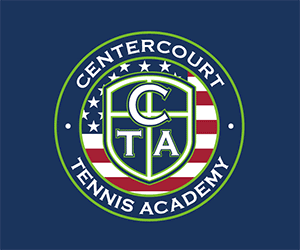How to Handle Cheaters (Part One)

Cheating is a commonly used tactic of psychological warfare on the tennis court. I have many players who are not sure how to react when they are cheated or what to do about it.
It is a sad statement about junior tennis that cheating is so rampant in tournaments, and an in-depth discussion about cheating along with its causes and solutions would be the subject of an entire separate article.
Rather than tackle the bigger picture of cheating, I'd like to explore some practical solutions to the cheating problem and share with players and parents how I discuss this issue with my own students.
Four options
I tell my students that if they are cheated, they can basically respond in one of the following four ways:
1. Cheat back to make it even
2. Don't cheat back and deal with it
3. Quit the match and refuse to play a cheater
I tell my students that there is a fourth option that is categorically unacceptable: Excuse-making—whining, complaining, losing emotional control and usually giving up the match.
Students who choose the fourth option allow their opponent to manipulate them psychologically and they adopt a losing mentality. I tell my students that the excuse-making option is the only option that I absolutely will not allow.
I think if more coaches and parents framed the options this way, kids would have a clearer understanding about how to begin to handle a cheater.
The big ethical question
The first step for a player is to decide whether he or she believes it's ever ethically right to cheat back. Cheating back is a controversial moral issue. Many parents and coaches will draw an ethical line and say that cheating is wrong under any circumstances. But many others argue that while cheating is wrong, cheating back to make it even is more acceptable and even ethical.
Over the years, I've had many players and parents argue both sides of this issue, and my mind is still unresolved. The issue reminds me of ethical questions like: Is killing ever justified or is torture ever justified? These are difficult questions to answer in black and white. Certainly a moral person would never ostensibly condone killing or torture, but what if you are killing to defend your friends or family from harm? What if you are forced to torture to save citizens from an imminent threat? Indeed, this question itself was a prominent theme in the popular TV show “24” and it’s an openly debatable question.
I don't encourage my players to cheat or to cheat back, I don't think it’s right or responsible, but I have many families who decide that it is morally justifiable, and their students cheat only in instances where their opponent has clearly cheated them. At its core, its retaliation cheating—reactive cheating rather than proactive cheating
A small minority of parents and coaches actually encourage proactive cheating. They believe a player should "win at all costs," as they cheat with abandon at every opportunity. These folks believe "all is fair in war." But in my experience, most people fall into the first two groups I mentioned above, believing that cheating is always wrong, or that it can be justified as a form of retaliation in certain instances.
The majority of the families I work with believe in Option 2, which is that cheating is wrong under any circumstance, and that the player should have to deal with it and figure out a way to win even while being cheated. These families say "two wrongs don't make a right" and instruct their player: "Don't stoop to the cheaters’ level!"
Some of these families, in the face of obscene and relentless cheating, will instruct their player to choose Option 3: Quit the match and refuse to play, which is a legitimate plan of action against a determined cheater.
I recommend that the player and parents sit down together and form a strategy for handling cheaters. They can start by determining which of the first three options they find acceptable and acknowledging that the “Excuse-Making” option is totally unacceptable. From that point, the family can craft a plan of action, which we will discuss in more detail in Part Two of this series
In his popular book, The Tennis Parents Bible (First Edition), Frank Giampaolo has an excellent chapter on dealing with cheaters that I highly recommend. In the chapter, he mentions a survey that he took at a national tournament of more than 20 junior national championship players. Shockingly, ALL of them admitted to retaliatory cheating to win national tournaments. Indeed, most, but not all, of the top nationally-ranked kids I've coached are so competitive that this approach seems natural to them. They hate to lose so badly that they will take the match into their own hands and "fight fire with fire."
I have had students who have cheated proactively, whom I admonished and encouraged to develop better sportsmanship skills. I have had students who cheated reactively, whom I didn't judge, but I asked them to find the correct moral path and plan of action based on their family's values in coordination with their parents. And I have had the majority of my students choose to never cheat no matter the situation.
In Part Two of this series, I will discuss more specific skills and strategies to help players and parents develop a plan of action for properly handling a cheater.







